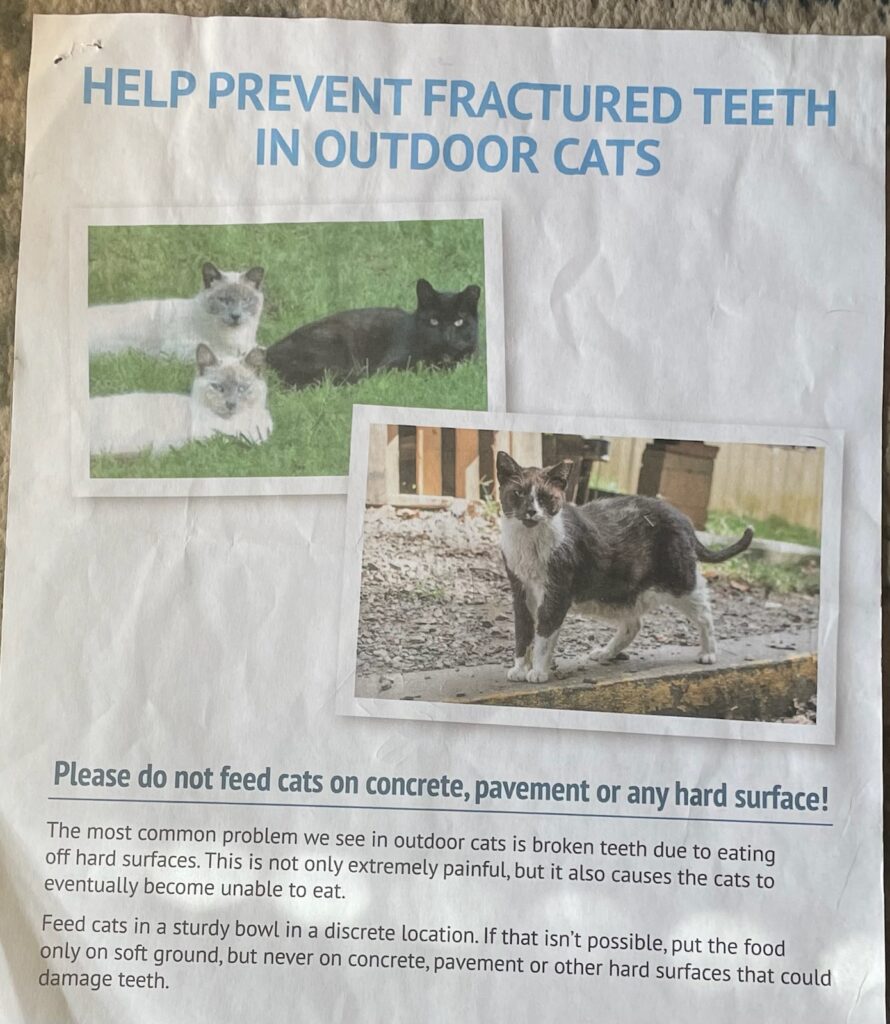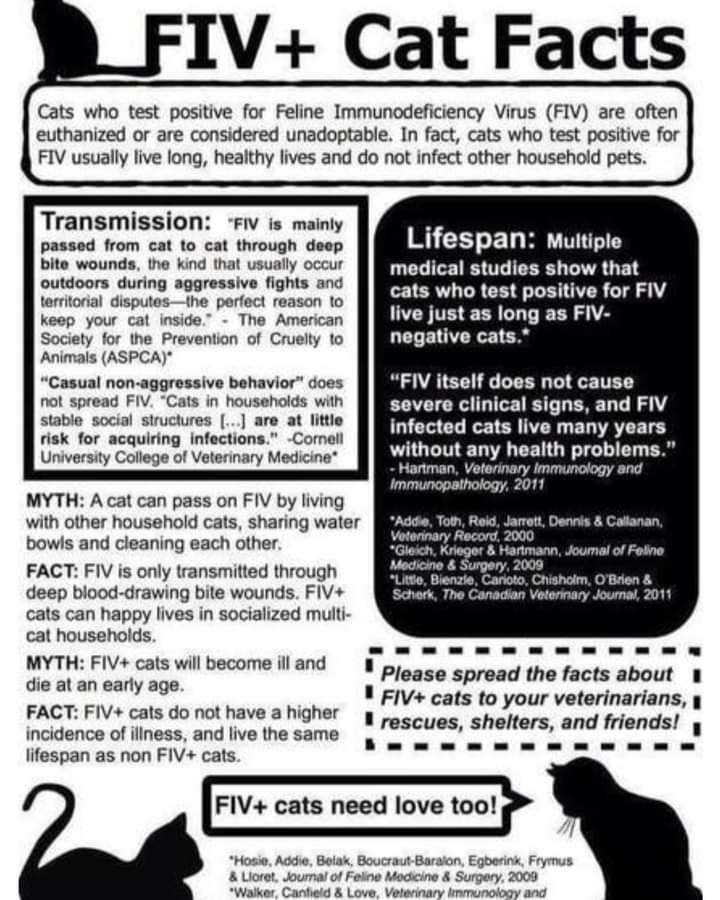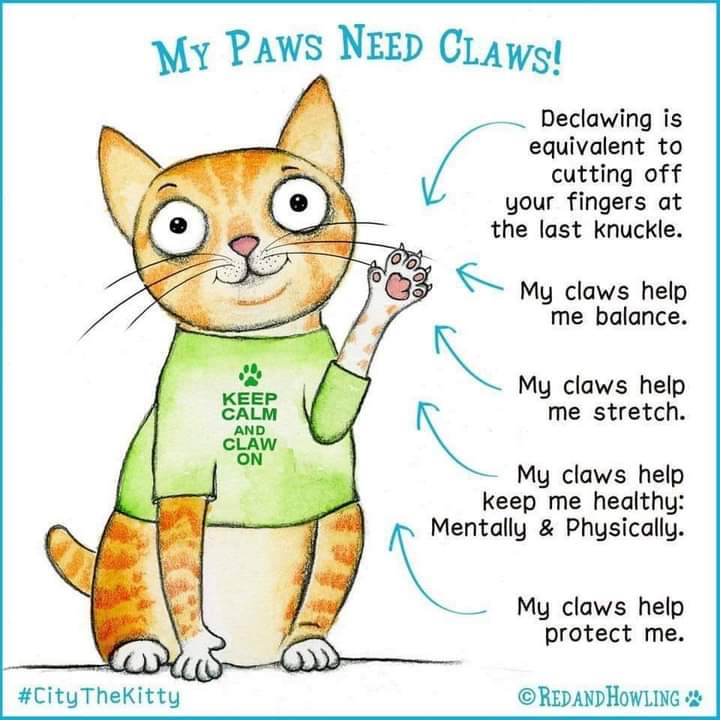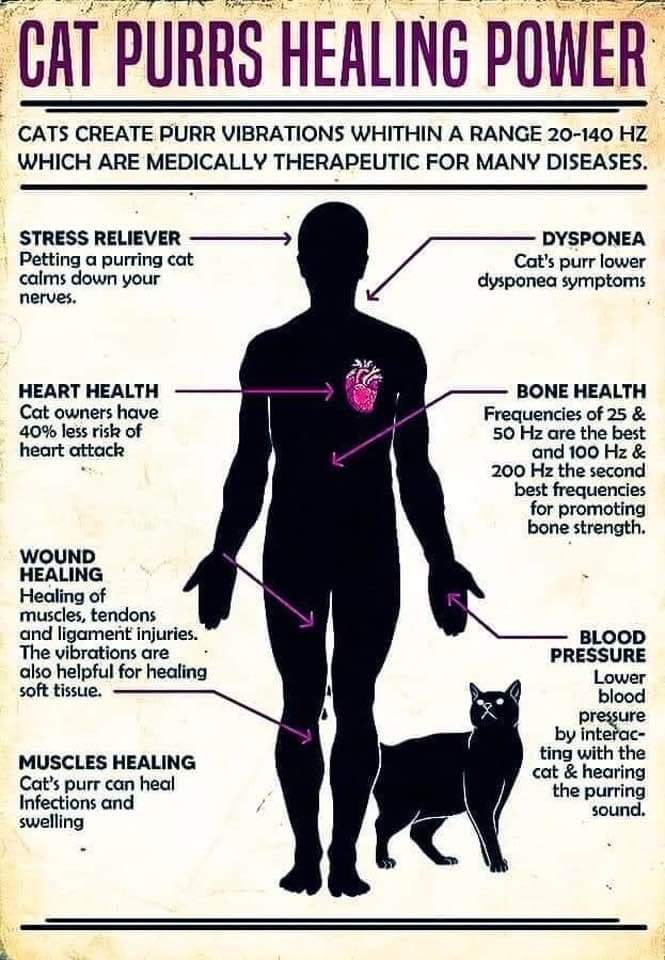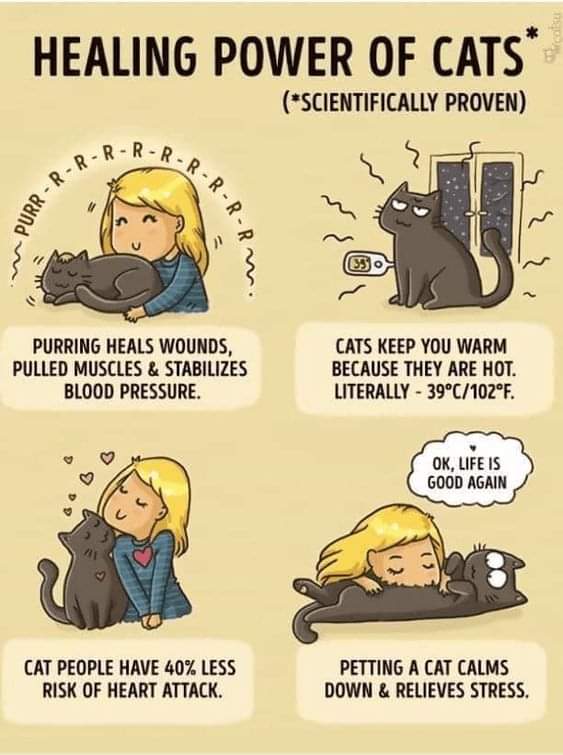- 10 of the most common “behavioral” reasons cats urinate outside the box - The litter is dirty The box smells bad The box is too small The box smells like harsh cleaning chemicals You don’t scoop often enough They don’t like the kind of litter you’re using The litter is too deep The litter isn’t deep enough The box is in a noisy location / they have no privacy You don’t have enough boxes (one box per cat is preferable) Do not assume
View Full Post10 of the most common “behavioral” reasons cats urinate outside the box
- Cancer in Cats — Fourteen Signs to Look For - Lump or growth that grows quickly A mass that seems to be attached to the underlying tissue A mass that changes its character Weight loss or loss of appetite Coughing or difficult/labored breathing Bloody urine or difficulty urinating Lethargy or a decreased energy level Straining or difficulty defecating A firm mass A pigmented mass A sore or wound that does not heal Difficulty eating or swallowing Persistent lameness Repeated vomiting
- Cat allergy research offers hope of possible cure - British scientists say they have discovered how cats trigger allergies in people, raising hopes for a possible cure to the feline-caused affliction. Researchers at the University of Cambridge say they have found a protein in cat dander — or dead skin cells — that interacts with a chemical in the human body to cause allergy symptoms, which can range from itching and sneezing to asthma attacks. … View Full PostCat allergy research offers hope of possible cure
- Cats and Their Litter Boxes - The best thing about cats is that they don’t need to be potty-trained. Relieving themselves in soft, loose material and burying their waste is an innate behavior, so even young kittens know what to do without being shown. All you have to do is provide an acceptable place for the cat to do her business. To start out on the right foot with your new cat or kitten we
- Chronic Kidney Disease - www.felinecrf.org
- Correcting Unwanted Behavior in Your Cat - Sometimes cats do things we don’t like such as jumping up on the table or counters, scratching on the furniture, or attacking our feet when we walk by. The first thing we need to learn before we try to “correct” these annoying behaviors is that they are all motivated by natural feline instincts. Cats naturally seek out high places to rest and survey their environment, so you should provide them
- Dealing with Abused or Neglected Cats - JUST AS YOU WOULD FEED A STARVING ANIMAL frequent small meals but never a large meal, give the emotionally deprived cat frequent light contact for very short periods. In some cases it may be necessary to pull yourself back all the way to just eye and voice contact. When you add petting, move slowly, use the light touch, and keep it short. Always stop soon enough to leave him wanting
- Declawing - If you are considering declawing your cat, please read this. … View Full PostDeclawing
- Easter Alert – Lilies Kill Cats! -
- Feeding Tips for Adult Cats - Cats maintained at their optimal body weight live longer than their overweight littermates. Establish a pattern for meal times according to the following guidelines: Adult cats should be fed an adult maintenance food to maintain an optimal body weight and condition. Indoor neutered adult cats should be fed a low-calorie, Light or Lite dry food. Feed the cat in the same place at every meal. Offer clean water at all
- Feeding Your Kitten Right — From the Start - Good feeding habits will help your kitten grow into a healthy, well-behaved cat. Start early and establish a pattern for meal times according to the following guidelines: 1. Feed a food specifically designed for KITTENS or GROWTH until about one year of age. 2. Offer individual meals 4 times a day until 6 months of age, then 3 times a day until one year old. Offer a measured amount of
- Feline Leukemia (FeLV) - Feline leukemia is a cancerous disease caused by feline leukemia virus (FeLV). FeLV causes diseases other than leukemia including other cancers and immunodeficiency. Cats may not start to show signs of disease for months or years after being infected with FeLV. Infection with FeLV is a major cause of illness and death in domestic cats. Approximately 2.3% of cats in the United States are infected with FeLV. Read more at
- Feline Vaccination Series - This vaccination series is designed to help protect your pet from several diseases. Booster shots should be given every 3 to 4 weeks until kittens are 3 months old. Adult cats should be vaccinated every 3 years but should have annual physical examination to screen for other illnesses. Vaccinations should be given to all cats even if they are strictly indoors. Recently adopted cats with unknown health histories should also
- FIV Positive Cats Can Live With FIV Negative Cats! - Today in News of the Obvious: FIV-positive cats can live with other uninfected cats and not transmit the virus. A veterinary study concludes this. Finally. Check out the full article here.
- FIV: Catching a Bad Case of Rumors - By Kristi Littrell (originally posted on bestfriends.org) Despite what many people think, cats with this condition can live perfectly long, happy, healthy lives. I was on my way back to the sanctuary after a family visit in Colorado. Curled up beside me, purring contentedly, was Reggie, the cat nobody dared take in. You’d think he was an unexploded bomb or an X-rated movie. Make that FIV-rated. FIV stands for Feline
- Good News for Feral Cats - Feral cats — nearly invisible and often reviled — have prowled into the spotlight. The free-roamers with an aversion to humans have grabbed headlines this spring because of a bounty on their heads in Iowa, a threatened roundup and disposal in Fairfax County, Va., and other elimination plans across the country. But the cats also are receiving attention of a different sort. Grass-roots groups and animal-welfare organizations are directing money
- If you’re for declawing cats, raise your hand. - Ever wonder what goes on behind closed doors at veterinary clinics? Why do veterinarians always take animals into the back? Are there dirty little veterinary secrets that animals can’t tell us? Declawing is one of the most painful, routinely-performed surgeries in all of veterinary medicine, and yet it is so common that one-quarter or more of all cats in the US are declawed.
- Introducing a New Cat Into the Home - Tips on introducing your new cat. … View Full PostIntroducing a New Cat Into the Home
- Resolving Cat Behavior Issues - The Humane Society of the United States (HSUS) has prepared an extraordinary compilation of information on cat behavior counseling. If you’re having any behavior issues with your cat, please check out the guide and see if you can resolve the problem. Hopefully this will help keep more cats in their homes! Click here to check out the guide!
- Senility in Cats - Many people have known old cats that have matured to the point of minimal activity, and who have lost most of their kittenish joie de vivre. That’s normal aging. Feline cognitive dysfunction (FCD), however, is a truly pathological condition represented by a constellation of behavioral signs that are abnormal, seem out of character, or are performed out of context. No one sign is absolutely diagnostic, but the insidious onset of
- Seven Great Ways to Keep Your Indoor Cat Happy - Create a Window View. Think about getting a window perch or window seat for your cat. It is important for your indoor cat to have a “view” and the ability to watch what is going on outside. This is a great way to create a stimulating environment. There are commercially available “window beds” that attach to your window frame. Cats love these. Another option is a cat tree placed near
View Full PostSeven Great Ways to Keep Your Indoor Cat Happy
- Stray or Feral Cats - Should I Feed Stray or Feral (Wild) Cats? The desire to help a hungry cat is such a compassionate one, and it’s estimated that 10% of the population feed outdoor cats. There are stray cats in almost every neighborhood, although they will tend to concentrate around food sources – a sympathetic person, or a dumpster. While it is a kindness to feed a hungry cat, consider how you will cope
- Teaching Your Cat to Use a Scratching Post - Cats scratch on things for two reasons: to shed their claws and to mark their territory. To save your furniture from damage, you should provide your cat with a scratching post or two and teach him/her how to use it. … View Full PostTeaching Your Cat to Use a Scratching Post
- Urine Marking (Spraying) in Cats - Urine marking (spraying) is a normal feline behavior that is quite unacceptable in the human household. Cats urine mark primarily to advertise their presence to other cats and to establish and maintain territories. The most common triggers for urine marking include a new cat in the household, free-roaming cats outside, or social conflict between family cats. However, other events such as a visitor to the home, new furniture, or unfamiliar
- Why Do Cats Knead? - Cats are interesting creatures, with many traits and behaviors that are easily recognized as being uniquely feline-the way they curl up tightly to take a nap, for example, or their characteristic grooming rituals after enjoying a meal. … View Full PostWhy Do Cats Knead?
